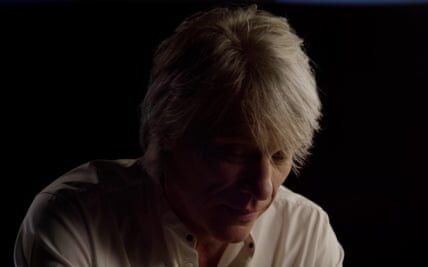Andrew O’Hagan’s book, “Caledonian Road,” is a poignant reflection of our current post-Brexit pandemic era, reminiscent of the works of Charles Dickens.
T
There has been recent discussion about “no-go areas” in London, areas that are supposedly restricted to certain communities. To those who are familiar with the city, this label is false and created by divisive political voices. However, there is a growing tendency for barriers between communities to be drawn within the realm of storytelling. There is a prevalent mindset that desires to restrict certain experiences and narratives to specific communities, creating a sense of ownership over each group’s history and stories.
This novel is unique in its willingness to explore areas that are often monitored by cultural studies departments and scrutinized by social media. Andrew O’Hagan is unafraid to venture into these territories and delve into the lives of the diverse communities living alongside the Cally, the main road leading north from London’s new center, King’s Cross. The end result is a work that could perhaps be described as “Dickensian,” offering a genuine glimpse into the bustling and diverse life of modern London, much like a crowded tube ride.
The story begins where many novels do, focusing on the life of the endangered white British male academic. Campbell Flynn is an expert in art history and has written successful books about the Dutch golden age. Despite his working-class roots, he has married into the wealthy elite, living in a lavish townhouse in a prestigious area of London. He also owns a country home in Suffolk, where his neighbor proudly displays local goods for sale. However, Flynn’s privileged life is unstable, both financially and emotionally. The book’s opening quote by Robert Louis Stevenson foreshadows Flynn’s downward spiral as the story unfolds.
He refuses to give up easily. He is smart enough to understand that in order to preserve culture, there must be a balance between significant transformation and maintaining a sense of humor: “Although ambiguity was a defining characteristic of the era, Campbell believed that he had fulfilled his duties as a soldier in that battle… He fought against Section 28, read every book about the decline of empires, took pride in being the father of a LGBTQ+ daughter, and was an early supporter of using preferred pronouns. However, like everyone else, he knew that he would fall short in some ways and acknowledged that it would be beneficial to find humor in it.”

Display the image in full screen mode.
Upon meeting him, when the capital is reeling from the back-to-back effects of Brexit and lockdown, he is searching for ways to revitalize himself. One of his personal strategies involves anonymously writing a polemic titled “Why Men Weep in Their Cars” which addresses the issue of masculinity crisis. On the public front, he has formed a friendship with one of his students at University College, Milo Mangasha. Despite growing up in a different world in the estates above Flynn’s affluent Henry James neighborhood, Milo is both a computer hacker and a radical post-colonial theorist. He also maintains connections with his rap artist friends from school. While Flynn hopes to find a common purpose between their worlds, Milo sees an opportunity for a potentially confrontational trial and education.
This is not a simple lesson on morality. Instead, O’Hagan gives equal attention to each character in Flynn’s downfall. The book even includes a two-page list of characters in the beginning to help readers keep track. Flynn, who admires Vermeer, believes that individual merit is the key factor in history, instead of privilege and power determined by birth. O’Hagan’s book explores the meaning of this belief for people like Flynn, and uses the idea of “common light” as his goal as an author. He brings to life not only Flynn, his titled acquaintances, and family, but also the everyday lives of people who work in car washes and sweatshop garment factories.
With ease, the author skillfully weaves together various characters and settings, including the occupant in Flynn’s basement in Islington, a bitter and lingering resident from a pre-gentrification Islington, Cecylia Krupa who hopes for a better England in her Polish church, and Zak Byre, the son of a property developer who juggles between living in a £7m flat and participating in Extinction Rebellion protests. The common thread throughout this London-based novel is the theme of financial indebtedness. O’Hagan suggests that tracing the money trail will inevitably lead to outrageous mortgages, shady city players, money-laundering oligarchs, and Saudi real estate, with detours involving drug dealers, human traffickers, and bitcoin investors.
As a journalist and editor-at-large of the London Review of Books, O’Hagan has a natural curiosity for exploring the unique atmosphere of unfamiliar territories and established ones. Along with his critical essays on Scottish poets Burns and Stevenson, he has also delved into thorough investigations on topics such as cryptocurrency, Julian Assange, and the dark web. His personal coverage of the Grenfell Tower fire sparked outrage among those who wanted to view the tragedy based on their own preconceived notions, but he instead advocated for a more nuanced and human perspective.
As a writer of fiction, he typically draws inspiration from his own emotional experiences. From his first novel, Our Fathers, which was set in the Ayrshire housing projects where he grew up, to his most recent book, Mayflies, which tells a fictionalized story of a teenage friendship, his writing has been deeply personal. However, his latest work takes a different approach as he combines his keen observation skills as a reporter with his understanding of ironic situations. The result is a satirical commentary on society’s behavior and norms, specifically targeting the elitism of Garsington Opera and the language of drill rappers. It serves as a firsthand report from the frontlines of cultural conflicts and offers a refreshingly enjoyable perspective on such issues.
Source: theguardian.com



